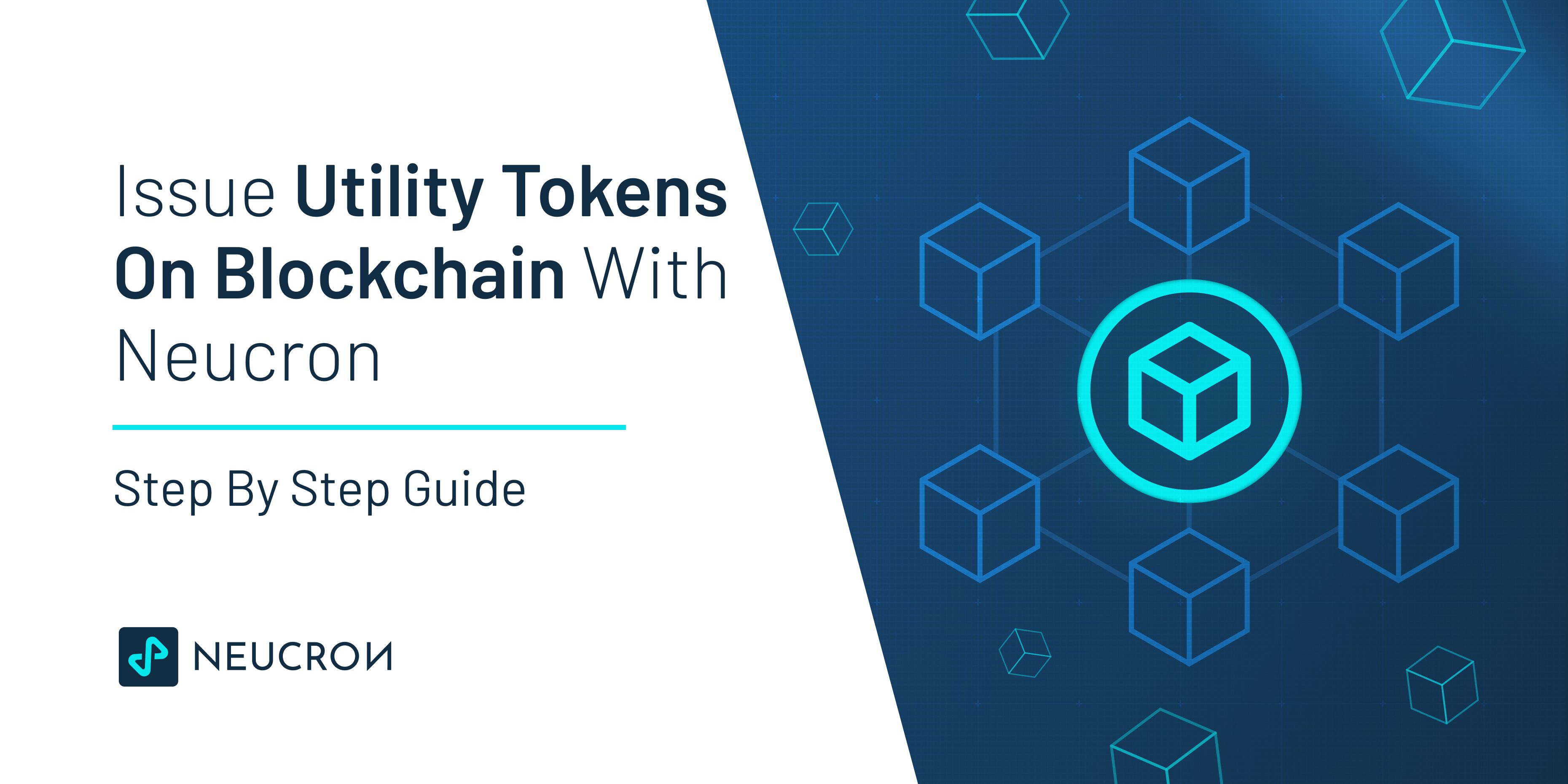Introduction to Utility Tokens
Welcome to the world of blockchain and cryptocurrency! Utility tokens are transforming businesses, and we're here to guide you through issuing them on the blockchain. Get ready to explore the realm of tokenomics and decentralized applications!
Benefits of Issuing Utility Tokens on Blockchain
Issuing utility tokens on the blockchain offers numerous benefits. They provide digital assets serving specific purposes within decentralized ecosystems, offering value to holders. Additionally, utility tokens enable innovative capital-raising through token sales, fostering transparency and community engagement. With blockchain, transactions are secure, transparent, and efficient, reducing costs and enabling seamless transfers globally.
Step-by-Step Guide on How to Issue Utility Tokens
Step 1: Define the Purpose
Start by clearly defining the purpose of your utility token. What problem does it solve? How will it be used within your ecosystem?
Step 2: Choose the Blockchain Platform
Select a suitable blockchain platform like BSV or Ethereum for issuing your utility tokens. Consider factors like security, scalability, and community support.
Step 3: Smart Contract Development
Work with experienced developers to create a smart contract that governs the issuance and functionality of your utility tokens. Ensure compliance with existing token standards like ERC-20 or ERC-721.
Step 4: Token Distribution Plan
Devise a comprehensive token distribution plan that outlines how tokens will be allocated to different stakeholders, including investors, team members, and advisors.
Step 5: Marketing and Compliance
Implement robust marketing strategies to promote your token sale while ensuring compliance with regulatory requirements in different jurisdictions.
Step 6: Launching the Token Sale
Execute a well-planned token sale event following all legal guidelines and best practices to attract potential investors and enthusiasts.
Legal Considerations for Issuing Utility Tokens :
Legal considerations are paramount in utility token issuance on the blockchain. Understanding diverse regulatory landscapes across jurisdictions is crucial for compliance and risk mitigation. Consulting legal experts in cryptocurrency and blockchain is recommended to navigate this complex terrain. Key considerations include assessing whether the token falls under securities regulations, impacting marketing and distribution strategies. Drafting a comprehensive whitepaper elucidating the token's purpose and functionality aids clarity for investors and regulators.
Robust security measures, including auditing smart contracts for vulnerabilities and implementing KYC/AML procedures, are vital for protecting user data and funds during token sales. Staying updated on evolving regulations and industry best practices ensures a smooth utility token issuance process.
Here are tips for successfully issuing and managing utility tokens on the blockchain:
- Define Purpose: Clearly define the purpose of your token and how it adds value to users within your ecosystem.
- Community Engagement: Engage with your community early and listen to their feedback to build trust and support.
- Transparency: Maintain transparency throughout the token issuance process by providing clear information about distribution, governance, and use cases.
- Security Measures: Implement robust security measures to safeguard against threats like hacking or fraud, using smart contracts effectively.
- Adaptability: Regularly review and adjust your tokenomics model based on market dynamics and user behaviour to ensure long-term sustainability.
By following these tips, you can increase the likelihood of success in issuing and managing utility tokens on the blockchain.
Case Studies:
Companies Who Have Successfully Utilized Utility Tokens
- BAT (Basic Attention Token) by Brave Browser: Brave rewards users with BAT for opting into ads and engaging with content, creating an ecosystem where advertisers target a receptive audience while users receive incentives for their attention.
- Binance Coin (BNB) by Binance Exchange: BNB holders enjoy reduced trading fees and participate in platform initiatives, driving demand for the token.
Neucron's Assetyzer fulfils the same requirements:
Neucron's Assetyzer platform offers a comprehensive solution for businesses looking to issue utility tokens on the blockchain. By leveraging Neucron's expertise and technology, companies can streamline the token issuance process and ensure compliance with regulatory requirements. Assetyzer provides a user-friendly interface that simplifies token creation and management, making it accessible even for those new to the world of cryptocurrencies.
With Neucron's Assetyzer, issuers can design custom tokenomics models tailored to their specific use case, ensuring that their utility tokens align with their business objectives. Additionally, Assetyzer includes robust security features to safeguard against potential threats and vulnerabilities in the decentralized ecosystem. Assetyzer is a valuable tool for companies seeking to harness the power of utility tokens on the blockchain.
In conclusion, The issuance of utility tokens presents exciting opportunities for companies seeking to use the power of blockchain technology. Looking ahead, the future outlook for utility tokens remains promising as more businesses explore innovative ways to leverage blockchain technology for creating value-driven ecosystems. As companies navigate the complexities of token creation processes and market dynamics surrounding digital assets like utility tokens, staying informed about emerging trends and regulatory developments will be crucial for sustainable growth in this space. By understanding the intricacies involved in creating and managing utility tokens effectively while addressing legal requirements and market demands thoughtfully - businesses can position themselves strategically within the evolving landscape of decentralized finance (DeFi) ecosystem.

